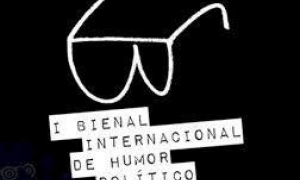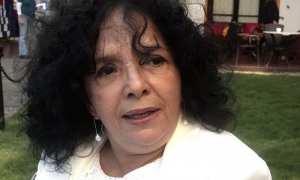
On April 4, 1978, a Cuban was presented with the highest literary award in the Ibero-American linguistic community, the Cervantes Prize. In Alcalá de Henares, a Spanish city located some 30 kilometers from Madrid, birthplace of the creator of Don Quixote, Alejo Carpentier received that day a distinction that exalted the work of a lifetime.
Established a year earlier, the Cervantes Award began its trajectory with the award to the Spanish poet Jorge Guillén. Hence, the recognition of Carpentier in the second edition of the Cervantes meant a resounding and well-deserved accolade for the writer, in the midst of so many contemporary authors of well-known qualities.
His acceptance speech was memorable, in which he confirmed his closeness to Cervantes' legacy and valued its importance in the birth of the modern novel. "Everything is already in Cervantes," he said. It would have to be said that, when reviewing the Latin American narrative production of the 20th century, everything, or almost everything, is in Alejo, who, like the Spaniard, defended "the imaginary dimension" of the novel -he called it the "marvelous real-" even when his harvest abounds with rigorously documented historical references.
Carpentier, who received the award that day, showed a seamless coherence between his extraordinary literary trajectory and his social conscience.
He was, as Roberto Fernández Retamar recalled much later, when inaugurating the International Congress dedicated to the centennial of the author of The Age of Enlightenment at Casa de las Americas in 2004, a writer "far from neutral, who time and again embraced just causes; he suffered political imprisonment in his youth for fighting against a tyrannical regime in Cuba; he defended the assaulted Spanish Republic; he fought Nazism in his articles; he fully identified with the Cuban Revolution, which moved him to return to his homeland and place himself at its disposal; he was a direct witness and denouncer of the monstrous war that the United States inflicted on Vietnam; he died at his post, as a soldier of the war of his time."
It was not surprising then that just eight days after he received the award, in a message dated April 12 and addressed to Fidel, he sent the medal commemorating the distinction and the material amount of the reward, "so that he could make the most convenient use of it." The Cuban State financed the reproductions that filled the galleries of Universal Art opened in several parts of the country. In Camagüey, that institution has become one of the nuclei of the city's cultural life.
Faced with Carpentier's gesture, a true prize for all Cubans, the leader of the Revolution responded: "Many decorations can fit in the chest of a man. But when a man feels that true greatness cannot exist if it is separated from the collective work to which he belongs, as you now show, he becomes worthy of the highest and most valuable of all: that of the admiration, affection and respect of his people."
In these times, a good way to reciprocate the writer's dedication and honor his permanent mark is to continue promoting the reading of his texts, particularly his stories and novels. How much would the new Cuban readers of this era grow if they were to immerse themselves in the pages of El reino de este mundo or El siglo de las luces, or in the deliriously amusing Concierto barroco!
Translated by ESTI






